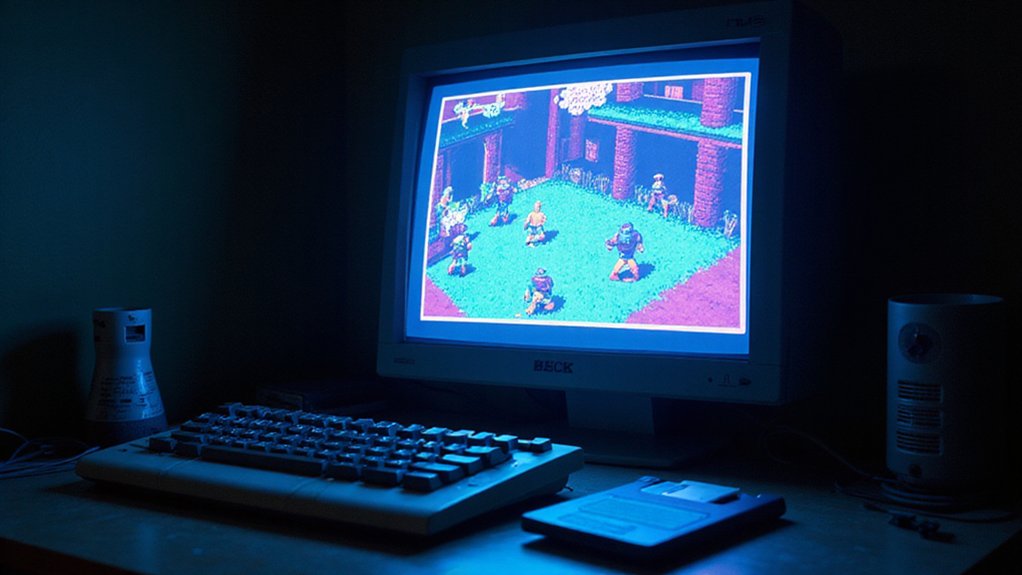In the DOS era, game developers fought piracy with clever tricks. Instead of just blocking illegal copies, they made them subtly unplayable. Pirates found enemies suddenly unbeatable, critical items missing, or puzzles impossible to solve. These deceptive measures let pirates think they had a working game until hitting these roadblocks. The battle between developers and pirates created a fascinating legacy of technical ingenuity that continues to influence modern gaming protection strategies.
During the early days of PC gaming, software developers employed creative methods to combat piracy in their DOS-based titles. These techniques often went beyond simple copy protection, with some programmers adding clever traps that would trigger only when pirates tried to play illegal copies of games.
Research on DOS game anti-piracy measures shows a variety of techniques developers used to protect their work. Many games would appear to function normally at first, then introduce subtle changes that made progress impossible. This strategy allowed pirates to think they had successfully cracked the game, only to discover later that they couldn’t complete it.
Games would lure pirates into a false sense of security before revealing the true cost of software theft through devious, progress-halting measures.
Some protection methods included altering enemy behavior to make them unbeatable, removing key items needed for progression, or adding impossible puzzles that weren’t present in legitimate copies. These approaches were more effective than simple startup checks because they were harder to detect and remove through cracking.
The DOS era saw a constant battle between developers and software pirates. Game companies lost significant revenue to illegal copying, pushing them to implement these creative countermeasures. Rather than preventing copying entirely, many developers focused on making pirated versions less enjoyable or unfinishable. Modern games like Deception continue this tradition by requiring players to solve environmental-puzzle challenges to progress through the game.
While specific information about a DOS game called “Deception” featuring such anti-piracy measures isn’t available in current research, the name would have been fitting for a title that deceived pirates into thinking they had successfully obtained a working game. The Deception title is better known as a PlayStation series developed by Tecmo, with versions also available on digital platforms like Steam. This franchise is recognized for its unique gameplay mechanics that focus on passive combat using traps rather than direct confrontation.
The creativity of DOS-era developers in protecting their intellectual property demonstrated their technical ingenuity. These protection methods have become part of gaming history, showing how developers turned the tables on pirates by letting them think they’d won, only to face frustration later.
Modern games continue this tradition with more sophisticated methods, but the DOS era established many of the approaches still used today.









